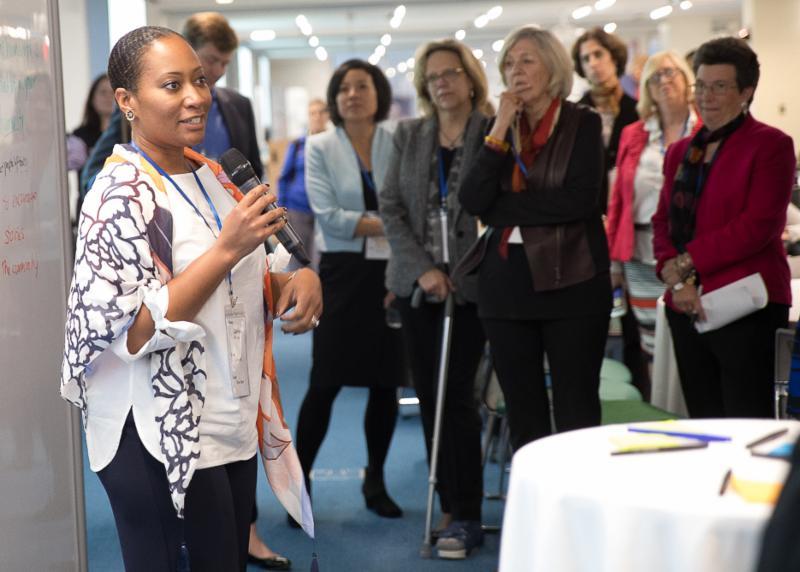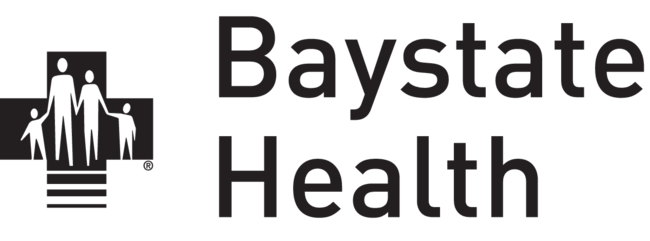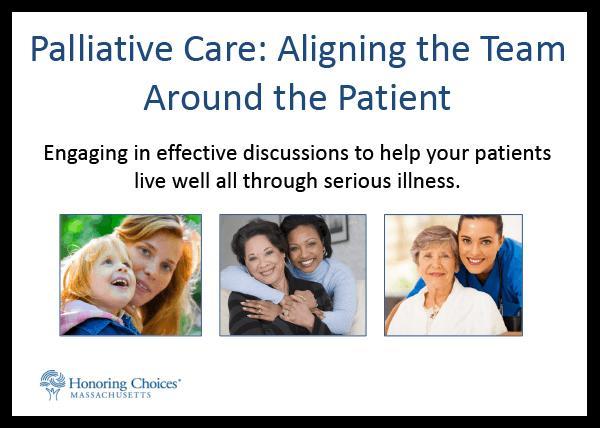Join us for November 19 Coalition Meeting

At last year's fall business meeting, we heard from members about the importance of public outreach to encourage advance care planning. Attendees also asked the Coalition to help by developing messaging that could be used to motivate patients and families to engage in meaningful conversations about care preferences, values, and goals.
We're ready to take on that challenge! Thanks to a contribution from Blue Cross Blue Shield of Massachusetts, we're in the process of engaging a communications agency to help develop and test potential messaging. On Monday, November 19 at 2:00 p.m. in Boston, we will share details about this project - and will directly involve attendees in brainstorming about the proposed research and how it can be put to practical use by Coalition members. This will be an opportunity for us to hear from you about how we can get the most out of this project. It will be an interactive, participatory session. Please join us!
Helping More Patients Return Home

The ultimate goal of most hospital patients is to be able to go home safely. For older patients, that goal can be elusive. The Acute Care for Elders (ACE) unit at Baystate Health is aimed at reducing some of the biggest challenges involved in elderly care. ACE patients are reporting fewer falls, lower rates of delirium, and less functional decline. All of this contributes to a decreased length of stay.
“ACE is a unit that focuses on enhancing teamwork and creating care plans for patients with an eye to preventing complications, improving function, and increasing the possibility of returning home,” says Baystate Division Chief Dr. Maura Brennan. ACE is modeled on evidence-based geriatric care programs that have been around for more than 25 years. Since it started at Baystate as a pilot program in September of 2014, it has helped more than 3,000 patients.
Baystate’s ACE unit is a 39-bed unit open to inpatient and observation patients aged 65 and older. Five beds are designated for end-of-life care. The ACE unit is made up of an interdisciplinary team that includes geriatrics practitioners, nurses, pharmacists, and social work and case management experts. It uses an established protocol to ensure ACE patients get proper sleep, good nutrition, and get out of bed as quickly and as often as possible to increase mobility. Deficiencies of these can lead to delirium, an acute state of altered consciousness that can often be hard to detect and treat. “Attention to the small details yields benefits,” says Brennan. The ACE unit has customized lighting, signage, and other details to meet the needs of older adults.
Baystate takes the ACE model one step further with how it handles advanced care planning. They have a Goals of Care Conversation initiative designed to improve communication of patient wishes to health care providers and facilities. A trained clinician speaks with high risk patients and uses a protocol developed by Coalition co-founder Dr. Atul Gawande’s Ariadne Labs. The patient’s health care agent is encouraged to participate. These conversations help increase a patients’ understanding of their illness as well as give them the opportunity to express their concerns and sources of strength, so they can better formulate and articulate their care wishes. “The response was overwhelming,” says Brennan. “At least 100 conversations were held and only one or two patients didn’t want to participate.” After having the conversation, 58 percent of patients completed MOLST forms and 39 percent made changes to their treatment plan.
Baystate is training team members to give them prompts they can use to have conversations with patients about what matters most, and are keeping records to monitor the resulting changes. They hope for all ACE patients to have goals of care conversations. A multidisciplinary workgroup led by Dr. Erin Salvador is focused on efforts to spread goals of care conversations and the resulting advance care plans across the entire Baystate Health system.
Families of patients appreciate the benefits of both the conversations and the ACE unit more broadly. They have thanked the leaders for asking their loved ones about their wishes and are glad to see patients getting out of bed faster and staff having the patients practice the skills they will need when they go home.
The ACE unit gets excellent patient satisfaction scores. An increasing number of patients and families are requesting the ACE unit and physicians are recommending their patients be transferred there given outcomes and reputation.
For more information about the ACE unit please email Dr. Erin Salvador at [email protected] or Dr. Erin Leahy at [email protected].
If you have a story to share about your organization, please let us know! Contact Richard Averbuch at [email protected].
Recorded Palliative Care Webinar Now Available

A recorded webinar is now available about palliative care and aligning the care team around the patient. Every care provider can start a discussion! In this recorded webinar, Elizabeth J. Collins, MD, Palliative Care Medical Director, Lahey Hospital & Medical Center, provides insights on how palliative care can be effective at each stage of care for serious illness. Viewers can learn key questions to start a primary palliative care discussion and when it’s appropriate to refer for specialty palliative care. The content is aimed at all clinicians and care professionals. Also available are downloadable tools and resources, including a new palliative care directory hosted by the Hospice & Palliative Care Federation of Mass. You can view the webinar here.
The webinar is sponsored by Massachusetts Medical Society, Honoring Choices MA, American Cancer Society, Hospice & Palliative Care Federation of MA, Lahey Health, and developed in collaboration with the MA Department of Public Health and the MA Comprehensive Cancer Prevention and Control Network (MCCPCN), and the Northeast & Metrowest Palliative Care Coalition. For more information contact Ellen DiPaola, President & CEO, Honoring Choices Massachusetts, [email protected].